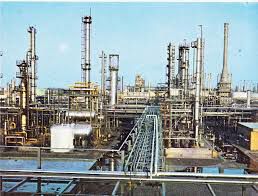THE COMING OF THE BRITISH CONSERVATIVE PARTY TO OFFICE IN 1951 AND THE NATIONALISATION OF THE ANGLO-IRANIAN OIL COMPANY’S CRISIS.
Eden’s opinion of Musaddiq was ‘one of the shrewdest and most devious “Orientals” he had ever encountered’.44 On interviews with Musaddiq, Eden commented in his memoirs that they ‘did not advance us one jot’.45 The British Government was not hopeful that the crisis would be settled with Musaddiq.
On 20th March 1952, the State Department of the United States announced that the Iranian Government could not have the $120,000,000 loan for which Musaddiq, the Iranian Prime Minister, had asked in Washington. The reason was, because it had the opportunity of getting substantial funds from its oil resources.
However, fear of an economic collapse in Iran and the likelihood of a Soviet takeover, ‘in a strategically significant area’,46 made the US policy on the question of aid to Iran ambiguous. To maintain stability in Iran, Truman and Acheson continued with providing financial help to Iran. On 1st April 1952, $16,000,000 of aid was received in Iran from the USA, only twelve days after the $120,000,000 loan had been turned down. On 24th April, American military aid, which had lapsed on 8th January, was resumed. Moreover, there had been, since November 1951, an American mission in Iran, supervising the expenditure of a $23,000,000 grant under the Point Four declaration by President Truman initiating the granting of technical aid to developing countries. ‘The British were furious at this because they were trying to use economic pressure to bring Musaddiq to heel.’47 The British could not see the relevance of Iran to the problem of western defence.
In the meantime Musaddiq had been discussing with the Soviet Ambassador the supply of oil to the Soviet Union. The United States was convinced that, if the Iranian economy were allowed to collapse,
it might provide a pretext for a Soviet occupation, possibly by invitation from Musaddiq’s leftist-inclined government. The whole problem was compounded by the Korean War, which has so drained US military strength that she had no more power available to counter such a Soviet move.48
Commitment of the US forces to protect Western Europe during the Cold War, under the North Atlantic Treaty Organisation (NATO), also added to the pressure of lack of manpower.
The British were concerned to protect their interest in Iranian oil and bringing down the Musaddiq government, and to safeguard their economic interests in the Arab world also. Furthermore, avoiding the possibility of forcing them to purchase dollar oil. The United States Government, however, was worried about a direct Soviet takeover of Iran. The Americans, therefore, continued to mediate in the dispute.
In the middle of May 1952, Brigadier-General Henry Byroade, the new Assistant Secretary of State (George McGhee’s successor), visited Iran. Byroade informed Musaddiq of America’s reluctance to continue giving aid to Iran under Point Four, so long as Iran was not making full use of her revenues. Attention was now directed towards the International Court of Justice in the Hague. No more attempt was made to reopen the subject of the Iranian oil for an ample period, by which time the victories had come Musaddiq’s way. Firstly, he had returned to office, having won the election in Iran. Secondly, Iran had won her case at the international Court of Justice.
When the British Charge d’Affaires attempted to persuade Musaddiq to submit the case to arbitration, the Iranian Prime Minister, on 7th August, presented a set of conditions. Such as, the repayment by the company of debts, a reference to the sums the Anglo-Iranian Oil Company had recognised as being due to Iran when it had offered the Supplemental Agreement, repayment of Iran’s blocked sterling balances in Britain, and indemnities for the delay in releasing both these sums. Only when these conditions were met, the Iranian Government was ready to negotiate with the Anglo-Iranian Oil Company, on the basis of the nine-point nationalisation law.
In conversation with HM Charge d’Affaires on the 14th August, after Mr. Middleton had made it clear that the Anglo-Iranian Oil Company (AIOC) could not accept the Persian Government’s proposal for negotiations within the framework of the Nine Point Law and after he had, as if on his own initiative, suggested informal discussions without specific terms of reference, Dr. Musaddiq put forward the following propositions:
- He offered arbitration by the International Court.
- He asked the United Kingdom for immediate financial aid.
- He invited the AIOC to discuss the future sale of the Bulk of Persian oil on commercial terms, eventually including free oil on a discount to cover compensation.49
- J. A. BILL and W. R. LOUIS, op. cit., p. 245.
- Ibid.
- F. VENN, Oil Diplomacy in the Twentieth Century, (London: Macmillan, 1986), p. 116.
- A. P. DOBSON, The Politics of the Anglo-American Economic Special Relationship 1940-1987, (Brighton: Wheatsheaf Books, 1988), p. 143.
- Ibid.
- PRO, London, CAB 129/54, C (52) 285, Memorandum on Middleton’s, British Charge d’Affaires, conversation with the Iranian Prime Minister, Dr. Musaddiq, Secret, 19th August 1952, p. 1.



